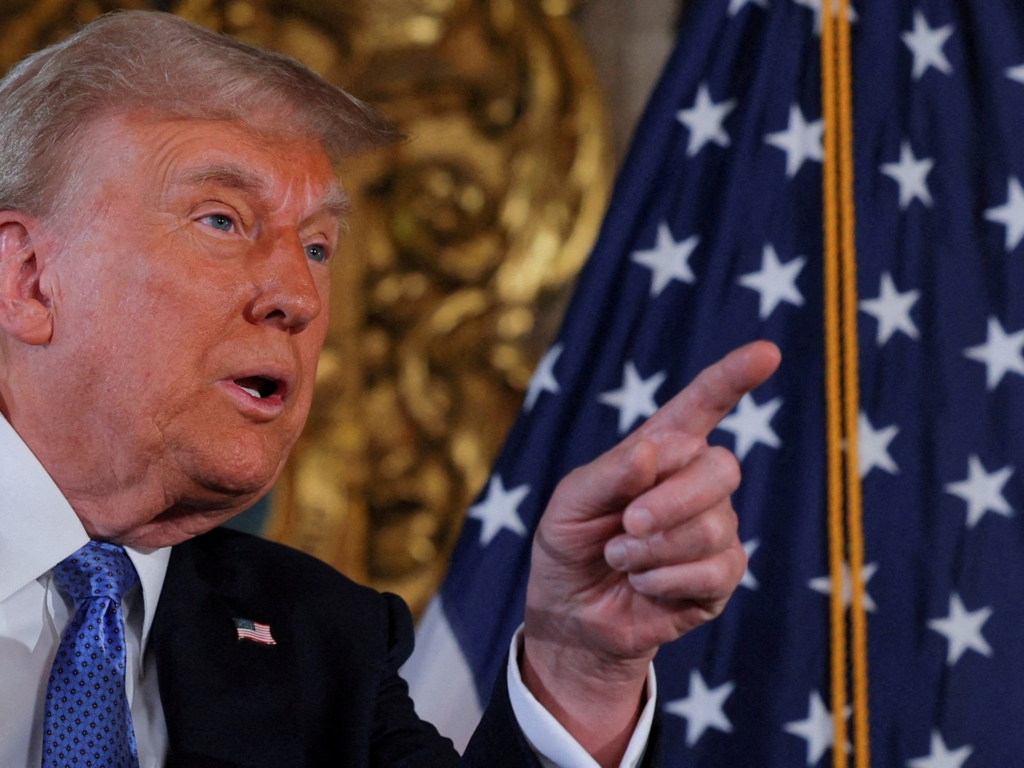Donald Trump has threatened to levy tariffs against the European Union if the bloc does not buy more oil and gas from the United States, in the latest economic warning from the US president-elect before his inauguration next month.
In a brief post on his Truth Social platform, Trump said he told the EU “that they must make up their tremendous deficit with the United States by the large scale purchase of our oil and gas”.
“Otherwise, it is TARIFFS all the way!!!” he wrote.
Trump, who takes office on January 20, has already threatened to impose steep tariffs on some of Washington’s top trading partners, which could send shockwaves across the global economy.
He said last month that he planned to slap 25-percent tariffs on Canada and Mexico if the two countries didn’t do more to stem irregular migration and drug trafficking across their borders with the US.
Trump also threatened an additional 10-percent tariff on China, the country’s top geopolitical rival.
Replying to questions on Trump’s threat on Friday, an EU spokesman said the 27-nation bloc was open to talks, noting that the US also enjoyed “a substantial trade in services surplus vis-a-vis the EU”.
“We are ready to discuss with President-elect Trump how we can further strengthen an already strong relationship, including by discussing our common interests in the energy sector,” Olof Gill said during a news conference.
The EU is already buying the lion’s share of US oil and gas exports, according to US government data, and no additional volumes are currently available unless the United States increases output or volumes are rerouted from Asia, another big consumer of US energy.
According to US figures, goods imports from the EU were $553.3bn in 2022 while its exports to the bloc totalled $350.8bn.
That puts the US goods trade deficit with the EU at $202.5bn that year.
Reporting from Brussels on Friday, Al Jazeera’s Jonah Hull said Trump’s tariffs threat has cemented a fear in European capitals “of a possible trade war” with the US.
“What a trade war with the US might do to already anaemic EU economies and indeed the political prospects of leaders in those [European] capitals” are also major questions, Hull reported.
The 27 EU member states also do not have a “concerted and agreed plan of attack”, he said.
“Do they, for instance, agree to buy yet more oil and gas? They’ve said they are willing to already anyway,” Hull said.
“Or do they prepare a set of retaliatory tariffs as they did during the first Trump administration? Or perhaps a combination of the two to try to strengthen their hand in negotiations?”
This month, the EU concluded a massive trade deal with four South American countries – Argentina, Brazil, Paraguay and Uruguay – which aims to create a free-trade area that would encompass 700 million customers.
European Commission President Ursula von der Leyen had said the agreement would build trade bridges as “strong winds are blowing in the opposite direction, towards isolation and fragmentation” – comments largely seen as a nod to Trump’s threats to hike tariffs.
Some analysts have said the US president-elect’s tariff threats could be bluster or an opening shot for leverage in future trade negotiations when he comes into office.
But Trump has continually insisted that “properly used” tariffs would be positive for the US economy.
“Our country right now loses to everybody,” he told reporters this week. “Tariffs will make our country rich.”







Yorumlar kapalı.